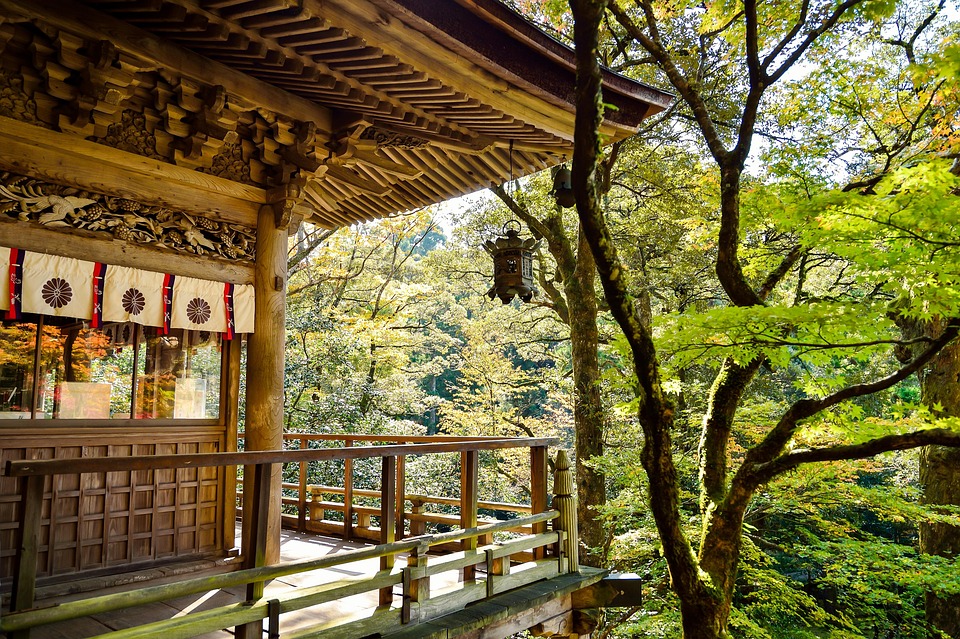Japanese culture is a tapestry woven with centuries of rich traditions, each thread telling a story that resonates with beauty and depth. Understanding these mind-blowing traditions not only enriches your knowledge but also connects you to a world that values harmony, respect, and artistry. Let’s embark on a journey through seven captivating customs that will truly amaze you.
The Significance of Japanese Traditions
Japanese traditions serve as a bridge between the past and present, offering a glimpse into the values and beliefs that shape daily life in Japan. They carry profound meanings, often rooted in Shintoism, Buddhism, and the unique historical context of the country. By exploring these customs, you’ll gain insights into the Japanese way of life, fostering a deeper appreciation for their culture.
1. Hanami: The Cherry Blossom Viewing
You haven’t truly felt spring until you’ve experienced Hanami, the Japanese tradition of cherry blossom viewing. Imagine yourself sitting under a canopy of delicate pink flowers, sipping sake, and enjoying delicious sushi with friends and family.
- What It Means: Hanami symbolizes the fleeting nature of life. The blossoms bloom brilliantly but only for a short time, reminding us to cherish every moment.
- Experience It: In cities like Tokyo and Kyoto, parks become vibrant gathering spots. Don’t miss the opportunity to join locals in picnicking under the sakura trees, appreciating nature’s beauty.
2. Omotenashi: The Art of Hospitality
In Japan, hospitality isn’t just a service; it’s a philosophy. Omotenashi embodies the spirit of selfless hospitality, where hosts anticipate guests’ needs without expectation of reward.
- What It Means: It’s about creating a warm, welcoming environment that makes guests feel cherished. Every detail counts—from the presentation of food to the warm smiles that greet you.
- Experience It: Whether at a traditional ryokan (inn) or a bustling restaurant, you’ll notice the meticulous care taken to ensure your experience is unforgettable.
3. Tea Ceremony: A Dance of Grace
The Japanese tea ceremony, or chanoyu, is more than just a ritual; it’s an art form that emphasizes harmony, respect, purity, and tranquility.
- What It Means: Every movement in the ceremony is deliberate, reflecting a deep connection to nature and mindfulness. It’s a moment to pause, breathe, and appreciate the present.
- Experience It: Participate in a tea ceremony, where you’ll learn to make and appreciate matcha in an atmosphere of serene beauty. The process invites you to slow down and savor each sip.
4. Shinto Festivals: Celebrating the Seasons
Japan’s Shinto festivals (matsuri) are vibrant celebrations that bring communities together, honoring deities and seasonal changes.
- What It Means: These festivals are steeped in history and spirituality, showcasing the deep connection between the people and nature.
- Experience It: Attend a local festival, like the Gion Matsuri in Kyoto, and witness colorful parades, traditional music, and lively dances. You’ll feel the spirit of the community as they celebrate their heritage.
5. Kintsugi: The Art of Repair
Kintsugi is the Japanese art of repairing broken pottery with lacquer mixed with powdered gold, silver, or platinum.
- What It Means: This practice turns flaws into beauty, celebrating imperfections rather than hiding them. It teaches us that brokenness can lead to something even more striking.
- Experience It: You can find workshops in Japan that allow you to participate in this beautiful art form. It’s a powerful reminder that our scars tell stories that make us unique.
6. Ikebana: The Art of Flower Arrangement
Ikebana, or Japanese flower arrangement, is a disciplined art that goes beyond simply putting flowers in a vase.
- What It Means: Each arrangement reflects the beauty of nature and the harmony of life. It emphasizes balance, harmony, and simplicity.
- Experience It: Try an Ikebana class to immerse yourself in the principles of this ancient art. Each session encourages mindfulness and creativity, allowing you to express your emotions through floral design.
7. Obon: Honoring Ancestors
Obon is a Buddhist tradition held to honor and remember deceased ancestors. It combines deep spirituality with vibrant community gatherings.
- What It Means: This festival reminds us of the importance of family bonds and respect for those who came before us. It’s a time for reflection, gratitude, and celebration.
- Experience It: If you’re in Japan during Obon, participate in the Bon Odori dance, a joyful way to honor the spirits of ancestors while connecting with the community.
Why These Traditions Matter to You
Understanding these mind-blowing traditions in Japanese culture enriches your life by offering perspectives on how to embrace beauty, harmony, and respect in your own daily experiences. Each custom invites you to slow down, reflect, and appreciate the world around you.
By exploring these traditions, you’re not just learning about Japan; you’re also finding ways to enhance your own life with mindfulness, creativity, and connection.
Bottom Line
Japanese culture is a treasure trove of mind-blowing traditions that resonate with universal themes of beauty, impermanence, and connection. Whether it’s through the fleeting beauty of Hanami, the warmth of Omotenashi, or the artful grace of Kintsugi, these customs offer valuable lessons that can transform your understanding of life.
So, take a step into this enchanting world. Embrace the lessons, participate in the rituals, and let Japanese culture inspire you.
Frequently Asked Questions
What is the most important Japanese tradition?
While all traditions hold significance, Hanami is particularly beloved as it celebrates the beauty of nature and the transient nature of life.
How can I experience Japanese culture if I can’t travel?
Many local cultural centers and Japanese restaurants host events that allow you to experience these traditions through food, art, and community gatherings.
Is it difficult to learn about Japanese traditions?
Not at all! Many resources, including books, online courses, and local classes, make it easy to connect with Japanese culture from anywhere in the world.
Now, go ahead and dive into the beauty of Japanese traditions. They might just change the way you see the world!








